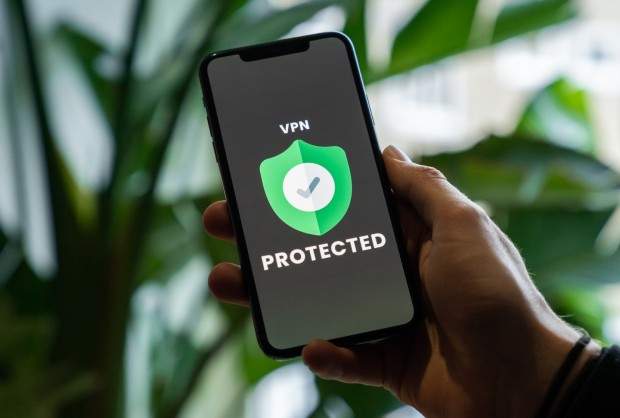Photo : Privecstasy on Unsplash
Are VPNs Legal and Safe to Use Now?
A virtual private network (VPN) is an incredible tool to help you maintain your online privacy and security. It is legal in most countries worldwide, but this does not allow you to commit illegal acts.
However, some countries either restrict or bans VPN usage completely. Can you get into trouble for using a VPN in these countries? Read on to find out more about the legality of VPNs.
Is a VPN legal in the US?
Currently, no laws in the US prohibit VPN usage, which is the same in most western countries.
A VPN will alter your IP address and encrypt your internet connection, making you anonymous online.
However, this is not a leeway to do illegal activities. Most VPN providers don't encourage using their services to commit a crime. Also, keep in mind that one tool won't shield you from facing legal consequences if you break the law. Your local authorities will use other means to track and catch you.
Where are VPNs illegal?
While most countries of the world allow VPN usage, others have either restricted or made VPNs illegal. The table below shows the current VPN status of different countries. Notably, these restrictions are mostly imposed in countries with oppressive regimes.
Sadly, some countries are known for restricting freedom of speech through many means, like banning news outlets or social media platforms. And because VPN services provide the right to privacy, it is no surprise that authoritarian regimes outlaw them.
The VPN status of different countries worldwide
|
Country |
Status |
Reason |
|
Iraq |
Illegal |
The main reason was to fight ISIS but hasn't eased the restrictions, especially because of the current internal turmoil. |
|
Belarus |
Illegal |
Authorities started to block VPNs and Tor in 2015. The recent unrest about fraudulent elections motivates the regime to maintain the block. |
|
Turkmenistan |
Illegal |
It is ruled by an oppressive government that compels internet users to swear on the Quran, and not use VPNs. The aim is to prevent citizens from accessing information that the state deems undesirable. |
|
North Korea |
Illegal |
This is one of the most totalitarian countries and has its own intranet. No wonder it is hostile to VPN usage. |
|
Iran |
Restricted |
The country is known for restricting internet freedom. In fact, proposed legislation to ban VPNs is in the offing. |
|
China |
Restricted |
The county permits VPN providers to operate, but they have to cooperate with the government, which defeats the purpose of using a VPN. However, many VPN services are unable to bypass the Great Firewall. |
|
Turkey |
Restricted |
Technically, using a VPN is allowed, but they are restricted to fighting terrorism. |
|
Russia |
Heavily restricted |
A law was passed in 2017 requiring VPNs and proxies to prohibit access to sites banned by the government. The providers that don't comply with the directive are forbidden. |
|
Uganda |
Heavily restricted |
Uganda blocks VPNs because citizens use them to bypass social media tax |
|
UAE |
Heavily restricted |
Internet usage in the country is highly censored, and VPNs are also banned because they aid in evading the restrictions. |
What is the legality of VPNs in Russia?
The current Russian-Ukraine war hasn't changed the legal status of VPNs in Russia. You are allowed to use a VPN in the country as long as the provider adheres to the state's demands.
However, after the war started, many people installed VPNs illegally to get past the curtailing censorship. In fact, The Internet Protection Society has opened a VPN service in Russia. This is meant to evade censorship and excessive regulation, although the government considers such an act unlawful.
Can your ISP know you are using a VPN?
Yes, it can. A VPN works by encrypting your data and not hiding it completely. The internet service provider (ISP) gives you access to the internet, and your data has to pass through its servers. When you activate the VPN, your data stands out because it appears gibberish - indicating that you are using a VPN.
However, some VPNs have a feature known as obfuscation (stealth mode) that makes your VPN traffic invisible. Hence, your ISP will not know that you are using a VPN.
Can using a VPN get me into trouble?
Using a VPN is fine unless you reside in a country where VPNs are illegal. However, a VPN won't protect you from legal consequences if you use it to engage in illegal activities. For example, downloading copyrighted content and unethical hacking are unlawful activities in most countries worldwide.
Repercussions of using a VPN illegally
The extent of the punishment will depend on your local laws. For instance, in countries where VPNs are illegal, you can get an administrative penalty, monetary fine, or even imprisoned.
Below are some of the punishments for using a VPN in different countries.
-
Belarus - $120 fine for accessing blocked content.
-
China - $2000 fine.
-
Iran - imprisonment from 91 days to a year.
-
Saudi Arabia - If you are a foreigner, you face deportation for using a VPN to access VoIP services like Skype or WhatsApp.
-
North Korea - The country's citizens can get capital punishment, but tourists can use a VPN.
-
Russia - $5100 fine for VPN consumers and $12000 for VPN providers.
-
Uganda - Exercising free speech attracts a $4000 fine and incarceration of up to 7 years.
-
United Arab Emirates (UAE) - Fines ranges from $136,000 to $544,000.
-
Oman - A fine of $1,300 for individual users and $2600 for VPN companies.
-
Turkmenistan - If caught using a VPN, you will face administrative penalties and be summoned by the Ministry of National Security for 'preventive conversation' or intimidation.
Why are privacy protection tools disputed?
The two main reasons are lack of knowledge and a bad name because of involvement in criminal activities.
Most people don't understand how a VPN operates, so they believe the different VPN myths and become reserved about using VPNs. This is because the elements that make a VPN work are not revealed to everyday users.
A VPN will help you to get rid of annoying things on the internet like pop-ups and censorship. Some people may see this as magic, which is scary to them.
Furthermore, criminals have given VPNs a lousy reputation. They use VPNs to commit illegal acts, access the dark web, and evade the law. In other words, VPNs help them avoid detection, hide within the populace and escape the government.
Bottom line: Are VPNs legal?
Using a VPN is permitted in most parts of the world, except in a handful of countries. VPNs will protect your online security and privacy as well as help you in other ways like unblocking geo-blocked content. However, be cautious in countries that restrict or ban VPN usage.
VPNs legality frequently asked questions (FAQs)
1. Is it safe to use a VPN?
Yes. It is designed to protect your data and prevent unnecessary exposure online. Many VPN providers even adopt a no-logs policy, which means they don't store your identifiable information.
2. Why is VPN legality a grey area?
As we mentioned earlier, VPN usage is legal in most countries. However, some totalitarian governments prohibit VPNs because they enable people to bypass censorship and avoid surveillance.
3. Can the police track my online activities when using a VPN?
The encryption algorithm employed by VPNs will prevent authorities from seeing what you are doing on the internet. However, they can get your connection logs from your ISP and ask your VPN to confirm your identity. If the VPN provider is trustworthy with a strict no-logs policy, there won't be any information to give.
4. Does Netflix ban VPNs?
Yes, it does. Usually, the company doesn't have the right to broadcast in certain countries because of licensing issues. So, it applies advanced VPN blocks to prevent you from bypassing its geo-restrictions.
5. Can I evade VPN blocks?
Yes, but you should be careful in a VPN-restricting country. The simplest way to bypass a VPN block is by switching servers to get a new IP address. Also, you can try to use a different VPN provider.
* This is a contributed article and this content does not necessarily represent the views of universityherald.com









